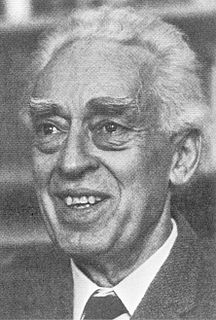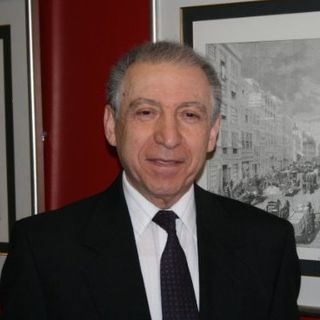Related Research Articles

Piero Sraffa was an influential Italian economist who served as lecturer of economics at the University of Cambridge. His book Production of Commodities by Means of Commodities is taken as founding the neo-Ricardian school of economics.
The historical school of economics was an approach to academic economics and to public administration that emerged in the 19th century in Germany, and held sway there until well into the 20th century. The professors involved compiled massive economic histories of Germany and Europe. Numerous Americans were their students. The school was opposed by theoretical economists. Prominent leaders included Gustav von Schmoller (1838–1917), and Max Weber (1864–1920) in Germany, and Joseph Schumpeter (1883–1950) in Austria and the United States.

Consumption, defined as spending for acquisition of utility, is a major concept in economics and is also studied in many other social sciences. It is seen in contrast to investing, which is spending for acquisition of future income.

John Quiggin is an Australian economist, a Professor at the University of Queensland. He was formerly an Australian Research Council Laureate Fellow and Federation Fellow and a Member of the Board of the Climate Change Authority of the Australian Government.

James W. Owens is an American economist and manufacturing executive. He is the former chairman and chief executive officer of Caterpillar Inc., the world's largest manufacturer of construction and mining equipment, diesel and natural gas engines and industrial gas turbines. He held the positions from 1 February 2004 through 2010.
Marina von Neumann Whitman is an American economist, writer and former automobile executive. She is a Professor of Business Administration and Public Policy at the University of Michigan's Ross School of Business as well as The Gerald R. Ford School of Public Policy.
Economic methodology is the study of methods, especially the scientific method, in relation to economics, including principles underlying economic reasoning. In contemporary English, 'methodology' may reference theoretical or systematic aspects of a method. Philosophy and economics also takes up methodology at the intersection of the two subjects.
David Victor Canter is a psychologist. He began his career as an architectural psychologist studying the interactions between people and buildings, publishing and providing consultancy on the designs of offices, schools, prisons, housing and other building forms as well as exploring how people made sense of the large scale environment, notably cities. He set up the Journal of Environmental Psychology in 1980. His work in architecture led to studies of human reactions in fires and other emergencies. He wrote about investigative psychology in Britain. He helped police in 1985 on the Railway Rapist case. He was the Professor of Psychology at the University of Surrey for ten years, where he developed investigative psychology described in detail in Investigative Psychology: Offender Profiling and the Analysis of Criminal Action and a course curriculum. He set up and was Director of the Centre For Investigative Psychology which is based at the University of Liverpool. Since 2009 he has been at the University of Huddersfield where he is the Director of the International Research Centre in Investigative Psychology. He is the founder and director of the International Academy for Investigative Psychology, an academy for researchers seeking to apply social science to investigative and legal processes.
The English historical school of economics, although not nearly as famous as its German counterpart, sought a return of inductive methods in economics, following the triumph of the deductive approach of David Ricardo in the early 19th century. The school considered itself the intellectual heirs of past figures who had emphasized empiricism and induction, such as Francis Bacon and Adam Smith. Included in this school are William Whewell, Richard Jones, Thomas Edward Cliffe Leslie, Walter Bagehot, Thorold Rogers, Arnold Toynbee, William Cunningham, and William Ashley.
Steven Pressman is an American economist. He is a former Professor of Economics and Finance at Monmouth University in West Long Branch, NJ. He has taught at the University of New Hampshire and Trinity College in Hartford, Connecticut.

Michael Szenberg is a professor emeritus and past Chairman of the Finance and Economics department at Pace University's Lubin School of Business. He was the editor of The American Economist.
Geoffrey Colin Harcourt is an Australian academic economist who is a leading member of the post-Keynesian school. He studied at the University of Melbourne and then at King's College, Cambridge.
Thierry Aimar is a French specialist of the Austrian School of Economics and History of Economic Thought.
Professor Farzad Sharifian is a pioneer of Cultural Linguistics and holds the Chair in Cultural Linguistics at Monash University. He has developed a theoretical and an analytical framework of cultural cognition, cultural conceptualisations, and language, which draw on and expands the analytical tools and theoretical advancements in several disciplines and sub-disciplines, including cognitive psychology, anthropology, distributed cognition, and complexity science. The theoretical/analytical frameworks and their applications in several areas of applied linguistics including intercultural communication, cross-cultural/intercultural pragmatics, World Englishes, Teaching English as an International Language (TEIL), and political discourse analysis are the subject of Sharifian’s monographs entitled Cultural Conceptualisations and Language and Cultural Linguistics. These books have widely been recognised as laying "solid theoretical and analytical grounds for what can be recognised as Cultural Linguistics"..
Jack L. Amariglio is a North American heterodox economist. He is well known for his work on economic history, class analysis, and on economic methodology and postmodernism in economics.
Sir Robert James Ball was a British economist, former principal of the London Business School (LBS) from 1972-1984 and a leader in the field of econometric modeling.
Gustav Eckstein (1875–1916) was an Austrian social democrat, and associate of Karl Kautsky. Apart from that, Eckstein was also a journalist and scholar.
Gilbreth, Inc. was the early management consulting and industrial engineering firm of Frank Bunker Gilbreth and his wife Lillian Moller Gilbreth. It was founded as Frank B. Gilbreth, Inc., consulting engineers, in 1911. Lillian renamed it Gilbreth, Inc. after Frank's death in 1924.

Clive L. Spash is an ecological economist. He currently holds the Chair of Public Policy and Governance at Vienna University of Economics and Business, appointed in 2010. He is also Editor-in-Chief of the academic journal Environmental Values.
References
- ↑ Wood, John Cunningham, ed. Léon Walras: critical assessments. Routledge, 1993.
- ↑ Tilman, Rick. "Recent Veblen scholarship: A foreword." International Journal of Politics, Culture, and Society 7.4 (1994): 581-588.
- ↑ John Cunningham Wood, PhD at 4-traders.com. Accessed 12.02.2015.
| This biography of an Australian economist is a stub. You can help Wikipedia by expanding it. |